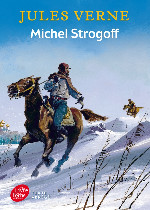
Michael Strogoff: The Courier of the Czar (French: Michel Strogoff) is a novel written by Jules Verne in 1876. Critics, including Leonard S. Davidow,[1] consider it one of Verne's best books. Davidow wrote, "Jules Verne has written no better book than this, in fact it is deservedly ranked as one of the most thrilling tales ever written." Unlike some of Verne's other novels, it is not science fiction, but a scientific phenomenon (Leidenfrost effect) is a plot device. The book was later adapted to a play, by Verne himself and Adolphe d'Ennery. Incidental music to the play was written by Alexandre Artus in 1880.
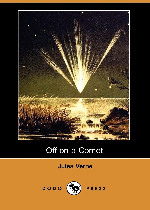
Off on a Comet (French: Hector Servadac) is an 1877 science fiction novel by Jules Verne. The story starts with a comet called Gallia, that touches the Earth in its flight and collects a few small chunks of it. The disaster occurs on January 1 of the year 188x in the area around Gibraltar. On the territory that is carried away by the comet there remain a total of thirty-six people of French, English, Spanish and Russian nationality. These people do not realize at first what has happened, and consider the collision an earthquake.
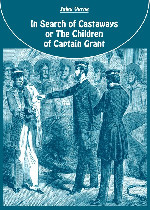
The Children of Captain Grant(格兰特船长的儿女) 立即阅读
In Search of the Castaways (French: Les Enfants du capitaine Grant, lit. The Children of Captain Grant) is a novel by the French writer Jules Verne, published in 1867–1868. The original edition, published by Hetzel, contains a number of illustrations by Édouard Riou. In 1876 it was republished by George Routledge & Sons as a three volume set titled "A Voyage Round The World". The three volumes were subtitled "South America", "Australia", and "New Zealand". (As often with Verne, English translations have appeared under different names; another edition has the overall title "Captain Grant's Children" and has two volumes subtitled "The Mysterious Document" and "Among the Cannibals".)
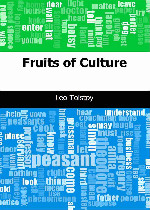
Fruits of Culture, aka The Fruits of Enlightenment, (1889-90, pub. 1891) is a play by the Russian writer Leo Tolstoy. It satirizes the persistence of unenlightened attitudes towards the peasants amongst the Russian landed aristocracy. In 1891 Constantin Stanislavski achieved success when he directed the play for his Society of Art and Literature organization.
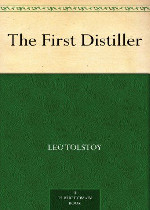
The First Distiller(托尔斯泰著戏剧) 立即阅读
CHARACTERS A PEASANT. { WIFE. HIS { MOTHER. { GRANDFATHER. { LITTLE DAUGHTER. A NEIGHBOUR. FOUR VILLAGE ELDERS. OLD WOMEN, WOMEN, GIRLS AND LADS. THE CHIEF OF THE DEVILS. HIS SECRETARY. A DANDY IMP. THE OFFICIALS' IMP. THE PEASANTS' IMP. SENTINELS, DOORKEEPERS AND IMPS.
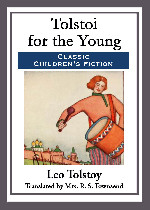
Tolstoi for the young: Select tales from Tolstoi(托尔斯泰故事精选) 立即阅读
Once upon a time there lived a rich peasant, who had three sons—Simon the Warrior, Taras the Pot-bellied, and Ivan the Fool, and a deaf and dumb daughter, Malania, an old maid. Simon the Warrior went off to the wars to serve the King; Taras the Pot-bellied went to a merchant’s to trade in the town, and Ivan the Fool and the old maid stayed at home to do the work of the house and the farm. Simon the Warrior earned a high rank for himself and an estate and married a nobleman’s daughter.
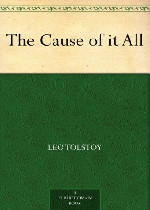
The Cause of it All(一切因由) 立即阅读
CHARACTERSAKULÍNA. An old woman of seventy, brisk, dignified, old-fashioned.MICHAEL. Her son, thirty-five years old, passionate, self-satisfied,vain and strong.MARTHA. Her daughter-in-law, a grumbler, speaks much and rapidly.PARÁSHKA. Ten years old, daughter of Martha and Michael.TARÁS. The village elder's assistant, speaks slowly and gives himselfairs.A TRAMP. Forty years old, restless, thin, speaks impressively; whendrunk is particularly free and easy.IGNÁT. Forty years old, a buffoon, merry and stupid.
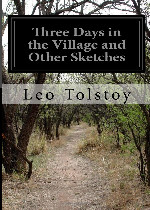
Three Days in the Village And Other Sketches(乡村三日) 立即阅读
Something entirely new, unseen and unheard-of formerly, has lately shown itself in our country districts. To our village, consisting of eighty homesteads, from half a dozen to a dozen cold, hungry, tattered tramps come every day, wanting a night's lodging. These people, ragged, half-naked, barefoot, often ill, and extremely dirty, come into the village and go to the village policeman. That they should not die in the street of hunger and exposure, he quarters them on the inhabitants of the village, regarding only the peasants as "inhabitants."
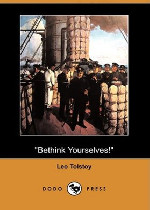
"Bethink Yourselves"(自我思考) 立即阅读
Again war. Again sufferings, necessary to nobody, utterly uncalled for; again fraud; again the universal stupefaction and brutalization of men. Men who are separated from each other by thousands of miles, hundreds of thousands of such men (on the one hand—Buddhists, whose law forbids the killing, not only of men, but of animals; on the other hand—Christians, professing the law of brotherhood and love) like wild beasts on land and on sea are seeking out each other, in order to kill, torture, and mutilate each other in the most cruel way.

What Shall We Do?(我们该怎么办) 立即阅读
"What Shall We Do?" by Leo Tolstoy explores the evil in men. He looks at men's desire for power, entitlement and money.